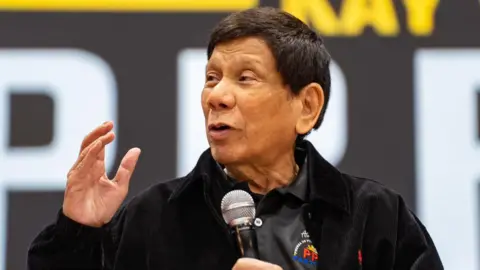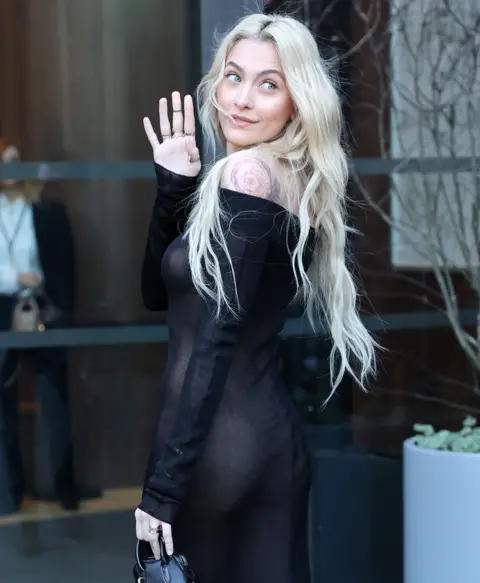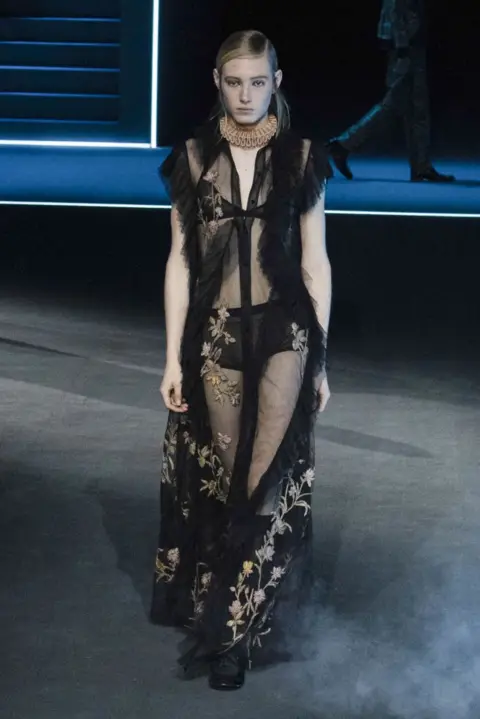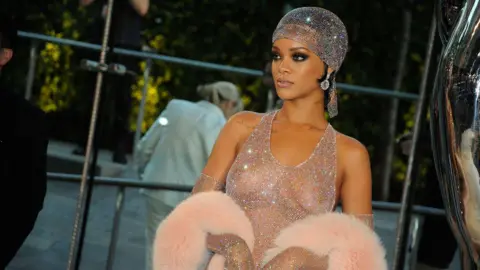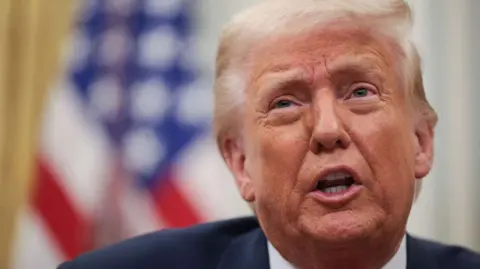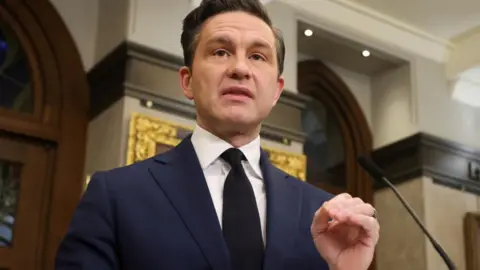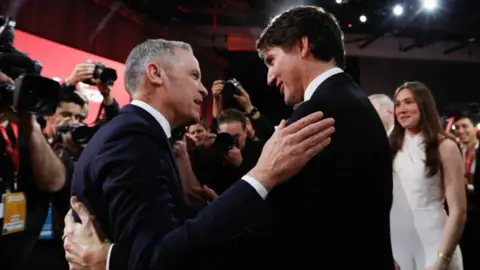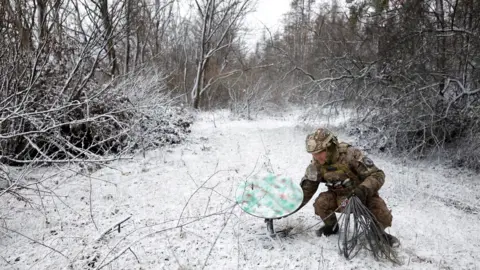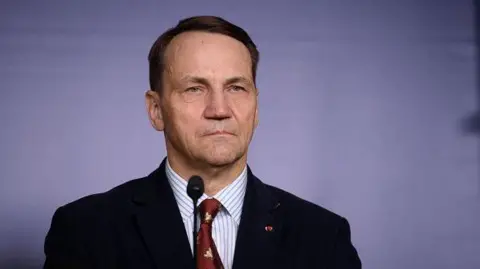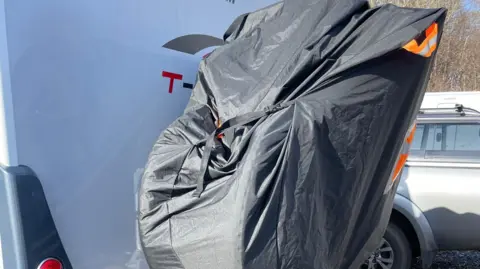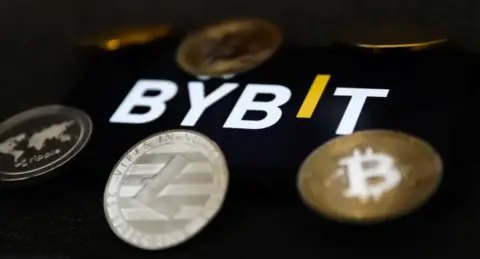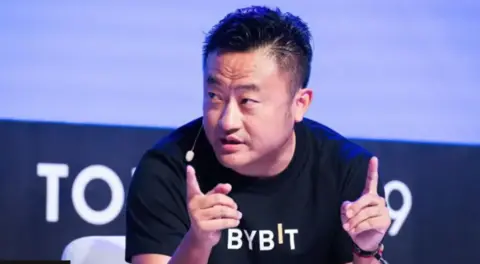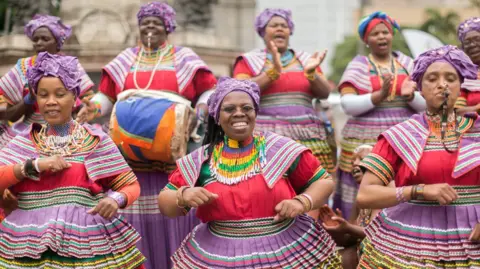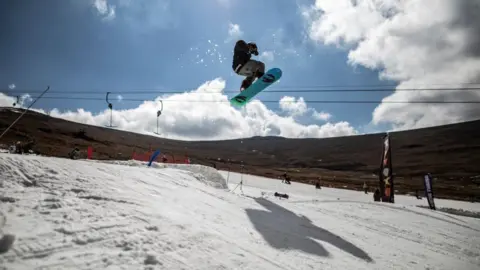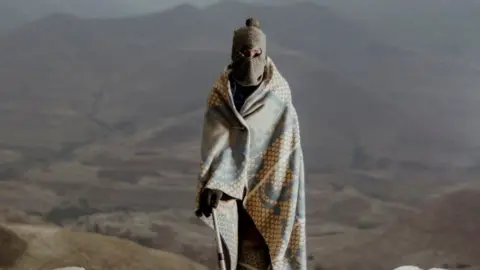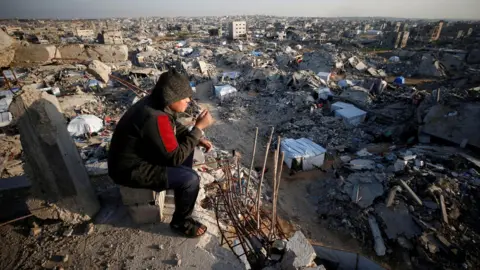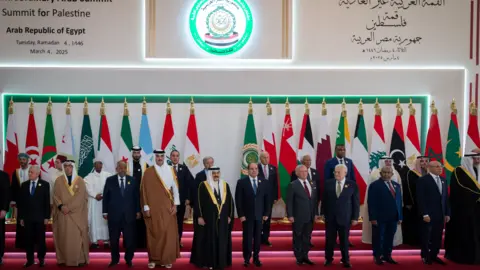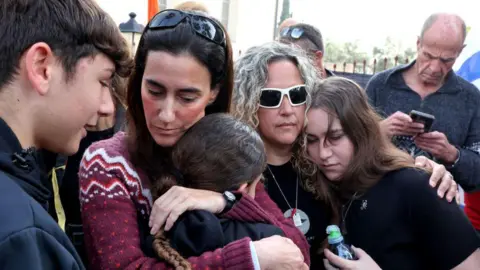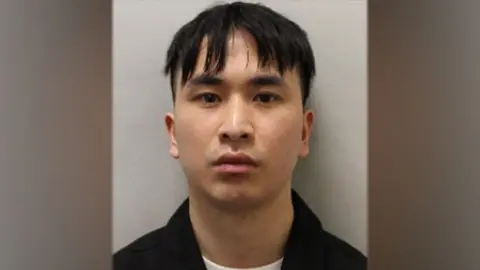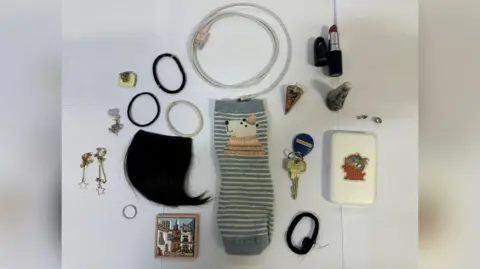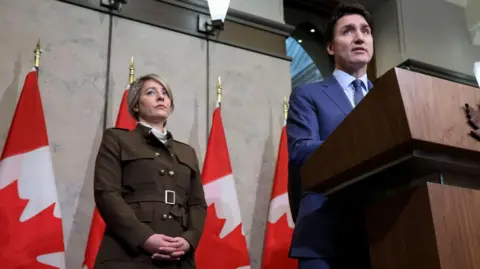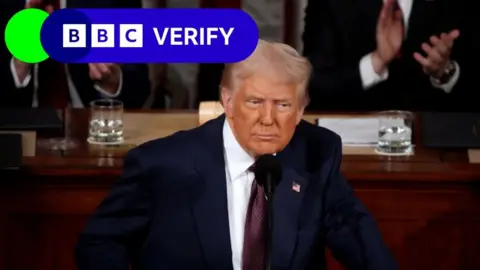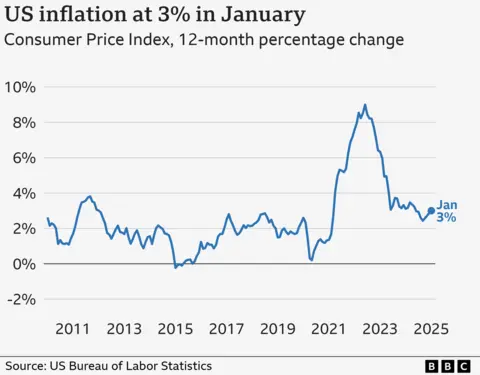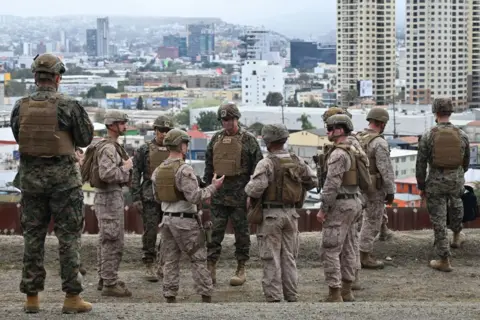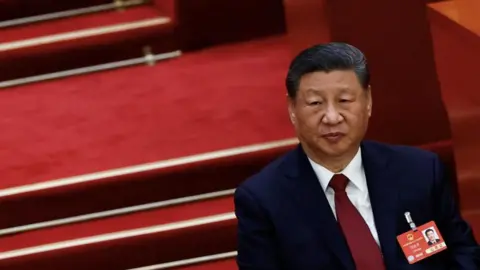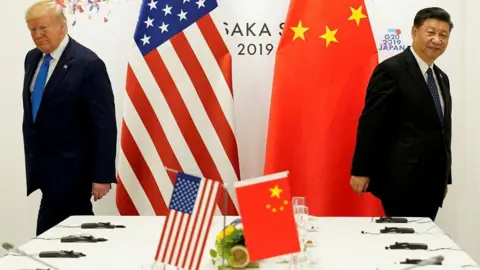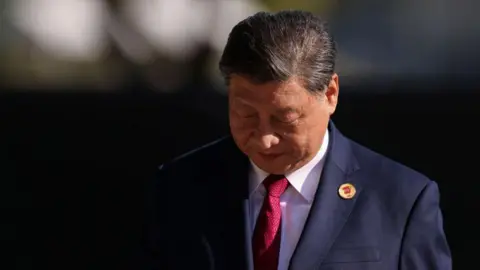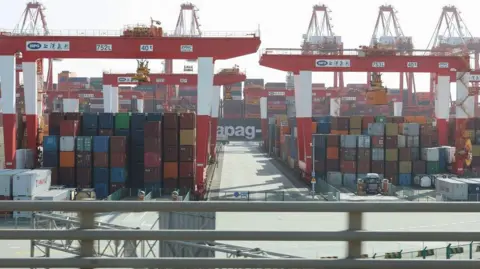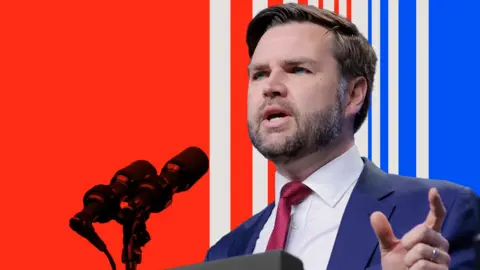 BBC
BBCAn argument in the White House tore apart the US alliance with Ukraine, shook European leaders and highlighted JD Vance’s key role in forcefully expressing Donald Trump’s foreign policy. The vice-president has come out punching on the global stage – so what is it that drives his worldview?
Vance’s first major foreign speech, at the Munich Security Conference in mid-February, caught many by surprise.
Rather than focusing on the war raging in Ukraine, the US vice-president only briefly mentioned the bloodiest European conflict since World War Two.
Instead, he used his debut on the international stage to berate close US allies about immigration and free speech, suggesting the European establishment was anti-democratic. He accused them of ignoring the wills of their people and questioned what shared values they were truly banding together with the US to defend.
“If you are running in fear of your own voters, there is nothing America can do for you, nor for that matter is there anything you can do for the American people,” he warned.
It was a bold and perhaps unexpected way to introduce himself to the world – by angering European allies. But days later he was back in the news, at the centre of a blistering row with Ukrainian President Volodymyr Zelensky, whom he accused of being ungrateful.
For those who have been studying the rise of Vance, these two episodes came as no surprise.
The vice-president has come to represent an intellectual wing of the conservative movement that gives expression to Trumpism and in particular how its America First mantra applies beyond its borders. In writings and interviews, Vance has expressed an ideology that seems to join the dots between American workers, global elites and the role of the US in the wider world.
On the campaign trail with Donald Trump last year, Vance spent much of his time sharply criticising Democrats – the usual attack-dog duties that traditionally get dished out to running mates – and sparring with reporters.
And while Elon Musk’s outsized and unconventional role in the Trump administration initially overshadowed him, that Munich speech and the Oval Office showdown have raised the profile of Trump’s deputy.
It’s also led to questions about the winding ideological journey he’s made during his years in the conservative movement – and what he truly believes now.
“He’s much more of a pragmatist than an ideologue,” said James Orr, associate professor of philosophy of religion at the University of Cambridge and a friend whom Vance has described as his “British sherpa”.
“He’s able to articulate what is and is not in the American interest,” Orr said. “And the American interest is not the interest of some abstract utopia or matrix of propositions and ideas, but the American people.”
Vance has repeatedly returned to this “America First” – or perhaps “Americans First” – theme in speeches, drawing a line between what he castigates as Washington’s economic and foreign policy orthodoxy abroad and the struggles of the left-behind American working class at home.
At the Republican National Convention last summer, for example, he lamented how in small towns across the US “jobs were sent overseas and children were sent to war”. And he attacked then-President Joe Biden, saying: “For half a century, he’s been a champion of every single policy initiative to make America weaker and poorer.”
But Vance is also someone who, after a tough upbringing in an Ohio family with Appalachian roots and sudden fame on the back of a bestselling memoir, Hillbilly Elegy, has tried out many different views.
Not only is he a former “Never Trumper” who described the US president in 2016 as “reprehensible” and “an idiot”, his book places much of the blame for the plight of the rural poor squarely on the choices made by individuals.
More recently he’s shifted that blame to elites – a group he’s variously defined as Democrats, conventional Republicans, liberals, corporate leaders, globalists and academics.
In speeches, Vance regularly argues that “America is not just an idea… America is a nation.”
He couples this statement with an anecdote about his family’s ancestral graveyard in Kentucky, where he says he, his wife and their children will one day be buried, arguing that family and homeland are more important than some of America’s traditional core ideas.
In Vance’s view, the Trump administration’s priority should be to make life better for Americans who have been in the country for generations, and yet have little of the nation’s vast wealth.
Rod Dreher, a conservative American writer who is also a friend of the vice-president, said Vance’s thinking arises from a belief that “moderate normie Republicans… failed to offer anything to stop the so-called forever wars, and they also failed to offer anything to ordinary Americans like where he comes from, who are suffering economically from globalism and from the effects of mass migration and fentanyl”.
“He got red-pilled, so to speak, by Donald Trump,” Dreher told BBC Radio 4’s Today Programme this week.
“Red-pilled” is internet slang for suddenly waking up to a supposedly hidden truth, as featured in The Matrix movies. It’s commonly used by those on the right online who believe they have special access to reality and that people with liberal, centrist or establishment views are uncritical thinkers.
Vance is a vice-president who, more than his boss, seems extremely plugged into internet culture. He’s an enthusiastic user of X, often jumping directly into arguments rather than using it, as many politicians do, as a platform for announcements.
His appearances on fringe right-wing podcasts, while he was trying to drum up support for a Senate run, provided fodder for his opponents, as did provocative trollish comments such as that the US was being run by “childless cat ladies”.
Married to the daughter of Indian immigrants, he has rejected and been rejected by members of the alt-right even if he does echo some of their views. However, he does have friends and allies both at the top of Silicon Valley and in some of its lesser known corners.
After graduating from Yale Law School, he was brought into the world of venture capital by influential Silicon Valley conservative Peter Thiel, who later funded his US Senate campaign.
He has cited people like the blogger Curtis Yarvin, a key guru in the “neo-reactionary” movement which dreams up fantasies of technologically-assisted, hyper-capitalist societies led by powerful monarchs.
His familiarity with the internet’s fringes was further demonstrated when he spread false rumours about immigrants eating pets and an allegation about Ukrainian corruption – which the BBC traced back to Moscow.
“He sort of stews in this online world,” said Cathy Young, a writer for the conservative, anti-Trump media outlet The Bulwark.
At the same time, Young said, his anecdote about family graveyards and homeland suggests another political tendency – a “disturbing undertone of nativism”.
“That bothers some people and rightly so,” she said. “Part of the American legacy is that we are a nation of immigrants. [Former Republican President] Ronald Reagan talked about that, about one of the distinctive things about this country is that anyone can come here from any part of the world and become an American.”
Vance’s “Americans First” thinking clearly extends to the issue of the war in Ukraine. When he was a senator, he was often critical of America’s involvement in the war and the huge sums spent on it, his former Senate colleague Josh Hawley, a Republican from Missouri, recalled.
“His position then was very much like what it is now… that the conflict must end,” Hawley told the BBC. “It needs to end in a way that’s maximally advantageous to the security of the United States and it needs to end in a way that gets our European allies to take increased responsibility.”
Vance regularly accused the Biden administration of being more interested in Ukraine than in stemming illegal immigration. Writing in 2022, during his Senate campaign and after the Russian invasion, he said: “I will be damned if I am going to prioritise Ukraine’s eastern border right now when our own southern border is engulfed by a human tsunami of illegal migrants.”
His views burst out into the open during that dramatic argument with President Zelensky in the Oval Office. Vance accused Zelensky of lacking respect, of sending politicians on a “propaganda tour” of Ukraine and of being insufficiently thankful for US aid.
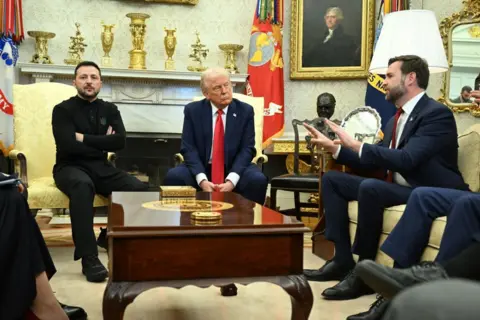 Getty Images
Getty Images“Offer some words of appreciation for the United States of America and the president who’s trying to save your country,” he told the Ukrainian president.
The argument left European leaders scrambling to defend Zelensky, while also trying to maintain negotiations over a possible peace deal.
Vance then prompted widespread outrage from allies when he poured scorn on the idea of security guarantees in the form of troops “from some random country that hasn’t fought a war in 30 or 40 years”.
He later denied he was talking about the UK or France, the only two European countries that have publicly stated their willingness to send peacekeepers to Ukraine.
But the vice-president’s willingness to step on the toes of allies reflect a world view which, in his words, has little time for “moralisms about ‘this country is good’, ‘this country is bad’”.
“That doesn’t mean you have to have a complete moral blind spot, but it means that you have to be honest about the countries that you’re dealing with, and there’s a complete failure to do that with most of our foreign policy establishment in this country,” he told a New York Times columnist last year.
His tone has shifted from the two years he spent in the US Senate before being picked by Trump. Democrat Cory Booker remembered Vance as “very pragmatic and thoughtful”.
“That’s why some of this stuff surprises me,” Booker told the BBC.
Others detect the same disconnect.
David Frum, now a writer for The Atlantic magazine, said that Vance’s views have changed significantly from when he first commissioned the former marine, who was attending Ohio State University at the time, to write for his website on conservative politics more than 15 years ago.
“He was not in any way the culture warrior that he is today,” Frum said.
Frum, a former George W Bush speechwriter and staunch critic of Trump, said that Vance’s view of Russia represented “ideological admiration”.
In Munich, as he spoke about free speech, the vice-president cited cases involving conservatives and Christians in Western countries but avoided any mention of Russia’s harsh clampdowns on expression.
Vance and his allies reject that he is sympathetic to Putin.
“I’ve never once argued that Putin is a kind and friendly person,” Vance, then an Ohio senator, said in a speech at the 2024 Munich Security Conference.
“We don’t have to agree with him. We can contest him and we often will contest him,” he said. “But the fact that he’s a bad guy does not mean we can’t engage in basic diplomacy and prioritising America’s interests.”
The BBC has asked the White House for comment on Vance’s stance in relation to Ukraine and Russia.
A quick end to the conflict in Ukraine is, in Vance’s view, not only about putting a stop to billions of dollars being spent thousands of miles away.
He himself has said that there are bigger issues for the US and its friends to focus on than Ukraine, namely the threat of China, which he has called “our most significant competitor… for the next 20 or 30 years”.
Vance’s views on Ukraine and his willingness to publicly air them provided a dramatic moment in the early days of Trump’s second presidential term.
But it also offered a vivid illustration of the vice-president’s ideology, his prominence in the Trump administration and how he views America’s place in the world.
With reporting by Rachel Looker and Anthony Zurcher in Washington and Lily Jamali in San Francisco

Follow the twists and turns of Trump’s second presidential term with North America correspondent Anthony Zurcher’s weekly US Politics Unspun newsletter. Readers in the UK can sign up here. Those outside the UK can sign up here.



